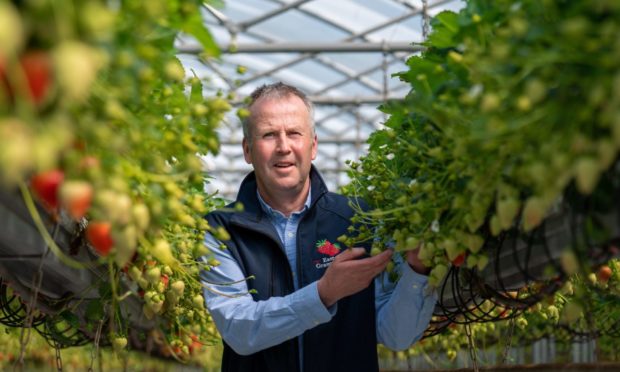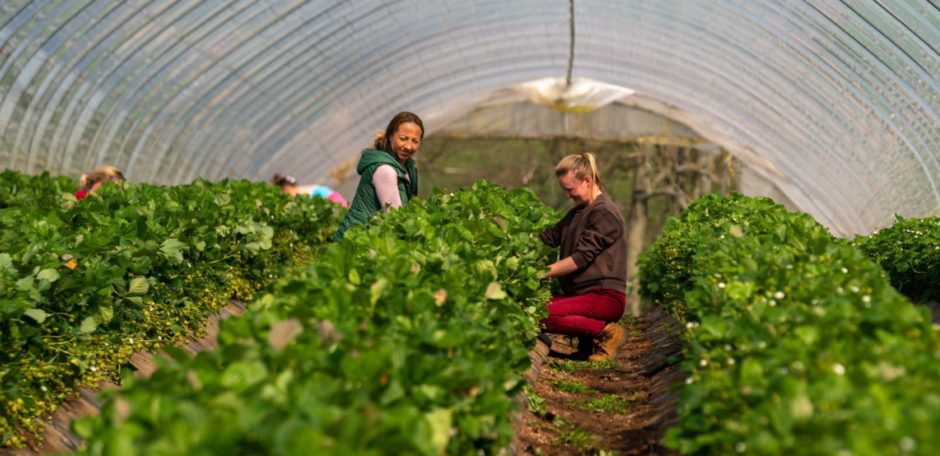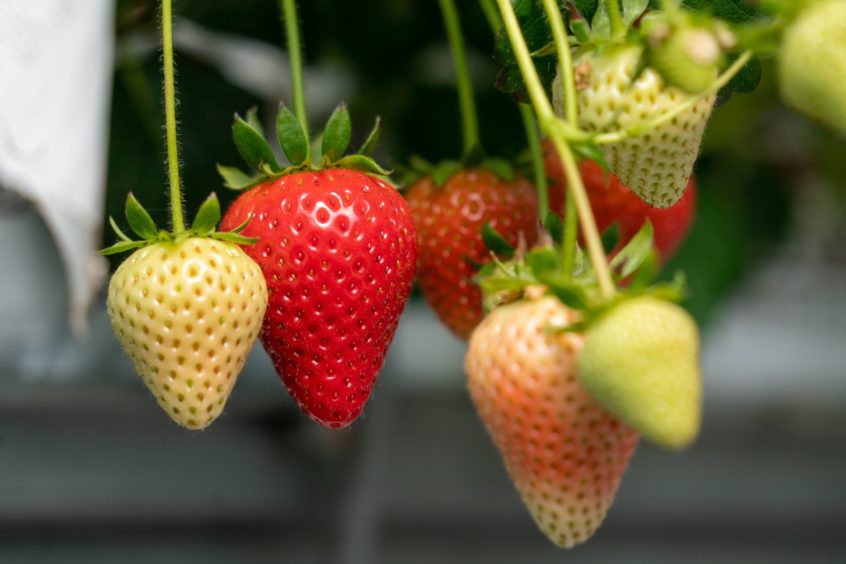Fife strawberry grower Iain Brown’s considers his inauguration as chair of NFU Scotland’s (NFUS) horticulture committee a baptism of fire.
The meeting had to deal with the fall-out from a critical report by Focus on Labour Exploitation (Flex) and the Fife Migrants Forum, which warned the seasonal scheme that allows people from overseas to work in agriculture was at risk of exploitation.
It was also Ian’s first-ever NFUS horticulture committee meeting, after being parachuted in at short notice to chair the group.
He now has his feet well under the table and, in addition to overseeing the early strawberry crops in his own heated polytunnels, he’s dealing with the industry’s ongoing shortage of seasonal workers and the Scottish Government roll-out of new Covid testing requirements for all foreign workers on farms.
He had been working alongside Angus grower James Porter, his predecessor as committee chair, on the labour issue for several years and says there was great relief when the industry won an increase in the allocation of overseas workers from 10,000 to 30,000 people this year. However the government’s delay in announcing the names of the contractors has put the success of the scheme in jeopardy.
“The increased numbers would have made the job workable, but then for the system not to be put in place is very disappointing for fruit growers,” he said.
“Clearly the scheme will not achieve its objectives this year. And while last year a lot of farms used furlough workers to complement the reduction in migrant labour , that won’t be available this summer.”
He is also concerned about the recent vote by the UK horticulture sector to reject the continuation of the AHDB levy body. The ultimate decision on the levy lies with Defra, and has still be be announced.
“I voted to remain – for various reasons,” Ian said
“A lot of the research ABDB does is very useful and necessary for the industry going forward.
“We’ve got an AHDB trial going on at the moment, on green cover crops in front of broccoli crops, because we need as much information as possible to help us optimise the value of these crops.”
Easter Grangemuir diversified into soft fruit 14 years ago, and three years ago the decision was taken to add two hectares of heated tunnels. They produce fruit for the Berry Gardens cooperative in the shoulder seasons when demand is high from major retailers and supplement the 22ha of tunnels which produce crops in peak season. The main crop is high-yielding Favori, and the large-berried, sweet Malling Centenery variety is used for early and late fruiting
“The two hectares of heated tunnels probably account for about 20% of production as there’s a crop in spring and autumn and margins are significantly different – although costs are also far greater,” Iain said.
The multiples are the main market for the Easter Grangemuir strawberries, but last year Iain’s wife Sally developed a strong local market by using social media. By the end of the summer the market had expanded as far as in Ayrshire.
The farm, just outside the East Neuk village of Pittenweem, also grows 200ha of cereals, oats for Quaker at Cupar, wheat for distilling and 180ha of vegetables – predominantly broccoli and cauliflower – through the East of Scotland Growers cooperative.


